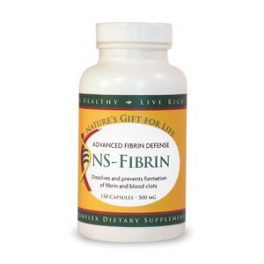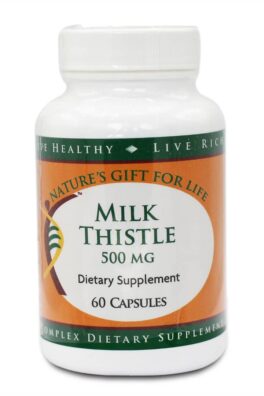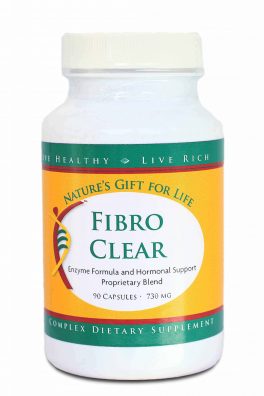Fibroid
DOCTORS RECOMMENDED PRODUCTS
Fibroids, also called uterine fibroids or leiomyomas, refer to non- cancerous tumors that grow in uterine tissue. They can form anywhere on the uterus. The cervix can also be affected by uterine fibroid growths. Uterine fibroids are a product of estrogen dominance (too much estrogen). Estrogentimulates their growth, and lack of estrogen causes them to atrophy. They are round, firm lumps composed of smooth muscle and connective tissue. They may occur singly or in groups, and they are usually small, but can grow to the size of an orange or grapefruit.
An estimated 20 to 30 percent of all women develop fibroid tumors at sometime in their lives, and black women have a higher risk of developing myomas. One in four black women have uterine fibroids.
Fibroids are named for where they grow in relation to the uterus:
• Intramural- the most common type, found inside the uterine wall
• Sub-serous or suberosal- grows outward from the uterine wall into the stomach or abdominal area
• Sub-mucous- grows inward from the uterus itself
Symptoms of uterine fibroids vary drastically. Roughly half of all women with fibroids are unaware of it, while the rest experience symptoms such as heavy bleeding, abdominal bloating, menstrual cramps, irregular periods, anemia, fatigue, discomfort during intercourse, spotting between periods, constipation, and increased urination.
As mentioned earlier, the major cause of fibroids is too much estrogen in the body, or estrogen dominance. Some of the causes of estrogen dominance are: Birth control pills; spermicidal condoms; hormone replacement therapy; ingredients in cosmetics; plastic cookware; growth hormones in meat and milk; pesticides and herbicides; PCBs – polychlorinated biphenyls; obesity; and stress
Healthy Things You Can Do
Fibroids are influenced by hormonal changes in the body, especially by an abundance of estrogen. Because of that, they can be successfully managed, reduced, or even eliminated by changes in your lifestyle with the guidance of a health care professional.
• Avoid oral contraceptives with high estrogen content, which can encourage fibroid growth. Instead, use contraceptive foam, condoms, a diaphragm, or a cervical cap.
• Consume foods high in iron to prevent anemia.
• Take a vitamin C supplement, and increase intake of vegetables and fruits (excellent sources of vitamin C and bioflavonoids). This helps strengthen capillaries and reduces heavy menstrual bleeding.
• Drink at least 2-3 liters of filtered water per day to prevent constipation and promote elimination of toxins.
• Eat a plant-based, whole, unprocessed food diet. Consume at least 30 grams of fiber per day. Eat lots of dark leafy greens, lentils, and beans and organically raised poultry.
• Lose weight – Being obese increases the number of fat cells in the body. Estrogen is metabolized in the fat cells, so overweight women have more estrogen than lean women.
• Reduce stress – Stress can cause women to stop ovulating and can create other hormonal imbalances. Stress also depletes the body of important B vitamins. Learn to manage your stress, and be sure to take a good vitamin B supplement.
• Avoid alcohol – It is the job of the liver to break up excess estrogen and excrete it; excess alcohol burdens the liver and hinders its other needed activities.
• Stop eating heavily processed foods. Avoid sugar, white rice, and all simple carbohydrates. They not only cause inflammation, pain, and swelling, but also cause an insulin spike in the blood. Insulin changes the way the body handles estrogen. This in turn encourages the formation of fibroids as well as
the growth of existing fibroids.
• Stop smoking – Smoking depletes micronutrients required for healthy hormonal balance and immune system response.
• Increase intake of essential fatty acids – EFAs help to metabolize hard, clogging, saturated fats that contribute to fibroid growths. EFAs also help maintain hormone balance and reduce inflammation.
• Increase intake of cruciferous veggies (broccoli, cauliflower, cabbage, and Brussels sprouts). They contain a natural antioxidant (Indole-3-carbinole) with powerful anti-tumor activity. It improves estrogen metabolism and the body’s ability to eliminate excess estrogen.
• Eliminate fried foods. They tax the liver, and the liver is where excess estrogen is processed.
• Stay away from all forms of caffeine, including tea and chocolate.
• Eat seaweed – Sea veggies help support the thyroid and adrenal glands, which are involved in keeping hormone levels in check.
• Stay away from soy, which contains phytoestrogens (plant based estrogens)
that increase estrogen levels in the body and encourage fibroid growth.
• Cut any animal product from your diet that has added hormones. This includes any conventionally-produced beef or dairy product.
• Do a full body cleanse before the start of any treatment using NG4L Rapid
Colon Flush and Colon Cleanser,NG4L Healthy Liver, and NG4L Chitosan Plus to flush out excess estrogen, toxins, and waste for better results.



